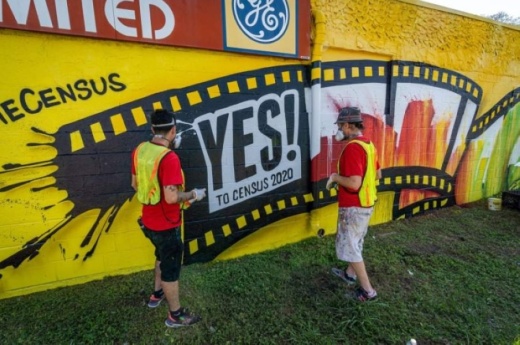With a 54.8% response rate, trailing the national average of 64%, Houston officials voted to approve at $175,000 boost to its contract with local advertising firm Lopez Negrete Communications. The firm was first contracted by the city in May 2019, prior to the coronavirus pandemic, which officials said has hampered the city's original outreach plans.
“When the pandemic hit, those volunteers did not show up. People were not going out there door to door,” Mayor Sylvester Turner said.
The contract was approved in two parts with a second vote by council in November 2019. The Aug. 19 vote by council was to increase spending beyond the original, agreed-upon amount now that federal officials have pushed up the response deadline to Sept. 30 despite previously suggesting an extension to Oct. 30.
Turner told council members the lagging numbers would be worse without local funds due to a lack of support from the state legislature. An accurate count affects representation in Congress and the amount of federal funding the city receives. If only 1% of the Houston population is undercounted in this year’s census, the city stands to lose as much as $250 million in federal support over the next 10 years, according to estimates by local officials.
“The state of Texas appropriated zero dollars to the census," Turner said. “But for local governments, there would be no money for the census.”
Council Member Greg Travis, whose West Houston district has some of the highest response rates in the city, questioned the expense stating that he would be willing to vote for the same amount or more funding if the city was seeing tangible results in its response rate.
"Nobody else in Texas got anything. We need to look at this as the crisis as it is. We are 45 days out, and we’re 10% behind," Travis said.
As of Aug. 18, Houston had the lowest response rate of Texas' major cities, slightly trailing Dallas's 55.5% response rate. Austin, San Antonio and El Paso have all surpassed a 60% response rate, with Austin, at 63.5%, coming closest to the national average, according to U.S. Census Bureau data.
The contract extension includes a proposal for a billboard and direct text-messaging campaigns as well as additional data analysis on hard-to-reach populations.
Some council members said they believe using the funding to emphasize door-to-door canvassing will be the best way to help Houston close its outreach gap.
“I believe there is a safe way to get into these households,” Council Member Jerry Davis said. “And a text message is not going to do it.”
The contract extension was approved 14-2, with Council Members Travis and Mike Knox voting against it.
Editor's note: this post has been updated for clarity.





